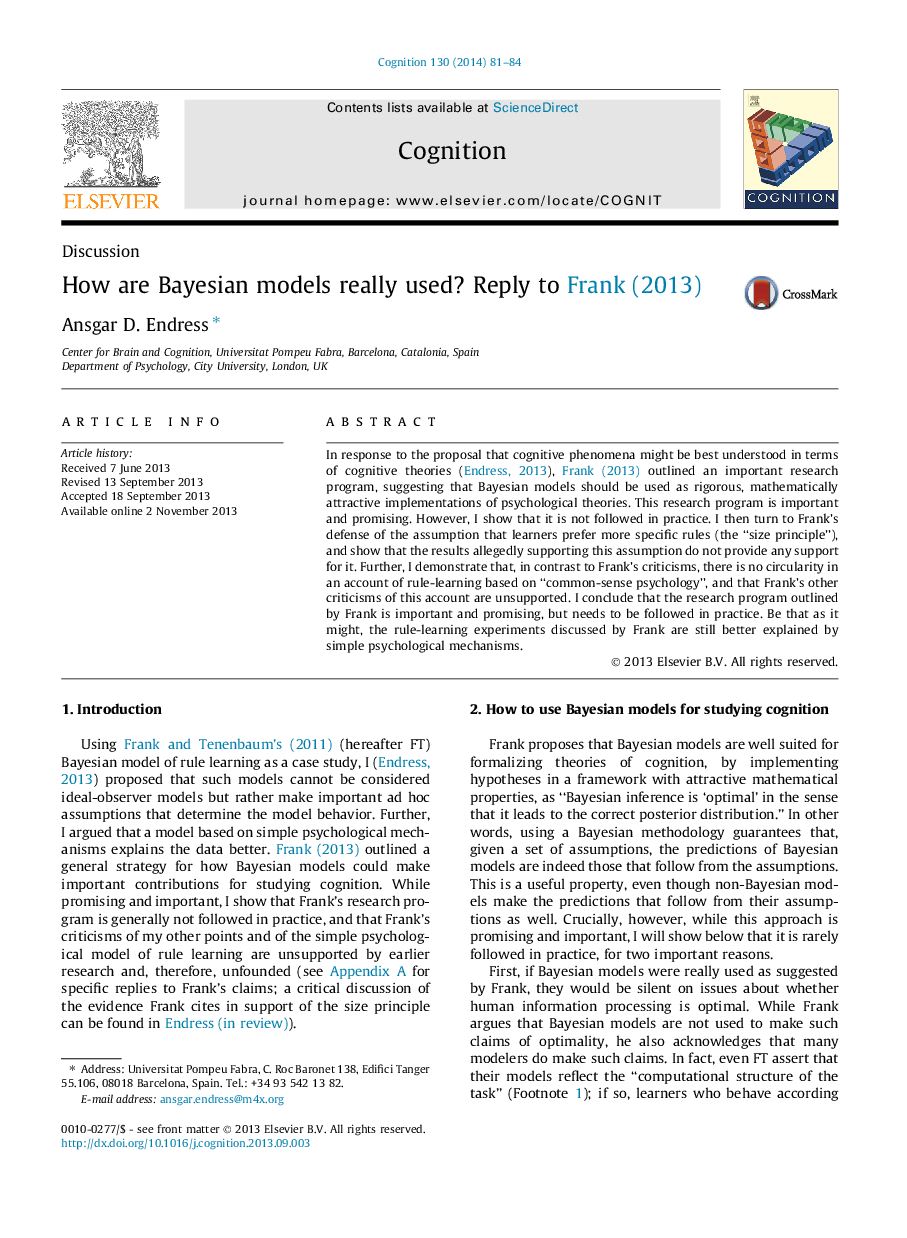| Article ID | Journal | Published Year | Pages | File Type |
|---|---|---|---|---|
| 10457774 | Cognition | 2014 | 4 Pages |
Abstract
In response to the proposal that cognitive phenomena might be best understood in terms of cognitive theories (Endress, 2013), Frank (2013) outlined an important research program, suggesting that Bayesian models should be used as rigorous, mathematically attractive implementations of psychological theories. This research program is important and promising. However, I show that it is not followed in practice. I then turn to Frank's defense of the assumption that learners prefer more specific rules (the “size principle”), and show that the results allegedly supporting this assumption do not provide any support for it. Further, I demonstrate that, in contrast to Frank's criticisms, there is no circularity in an account of rule-learning based on “common-sense psychology”, and that Frank's other criticisms of this account are unsupported. I conclude that the research program outlined by Frank is important and promising, but needs to be followed in practice. Be that as it might, the rule-learning experiments discussed by Frank are still better explained by simple psychological mechanisms.
Related Topics
Life Sciences
Neuroscience
Cognitive Neuroscience
Authors
Ansgar D. Endress,
